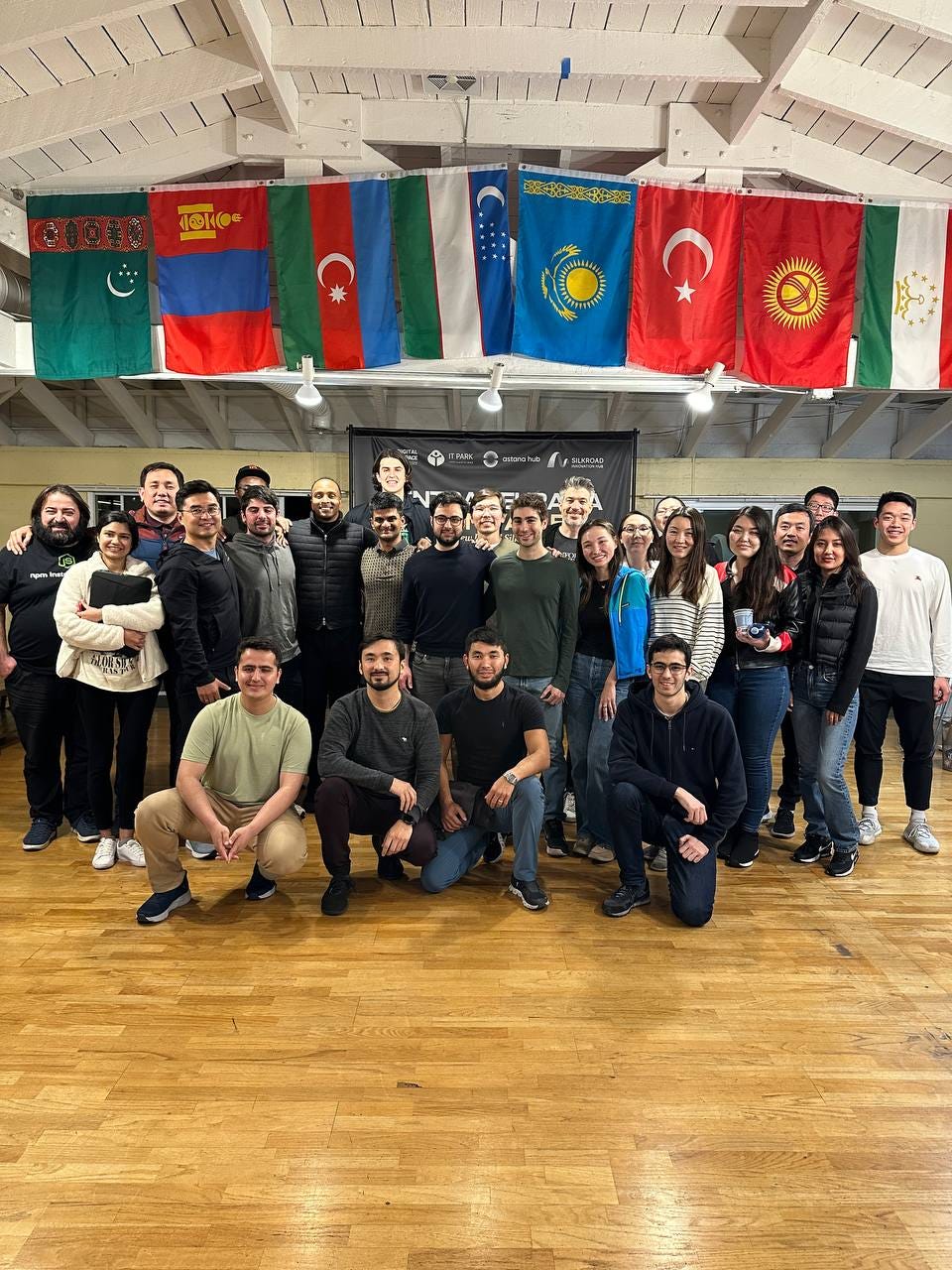Inaugural Icons Founder Panel
Insights from 5 of Stanford's leading early-stage founders
It was such a great opportunity for Icons to host and learn from five of Stanford’s leading early-stage founders: Omar Shaya – co-founder of MultiOn – Jared Quincy Davis – co-founder of Foundry – Sasankh Munukutla – co-founder of Terradot – Chyngyz Dzhumanazarov – co-founder of KODIF – and Georgi Koreli – co-founder of Hinkal Protocol. Thanks so much for sharing your insights with us. Thank you, Asror and Asset from Silk Road Innovation for hosting us. Please find a few key takeways below:
Key Lessons:
· The best founders know where to concentrate their focus. Identify what is truly important to the success of your company and intensely prioritize it. Ask yourself what are you willing to suck at to be the best in one area.
· Building a startup is full of constant ups and downs. You must be incredibly persistent to succeed. The journey is 100x harder than you expect in every way so prepare mentally.
· Don’t give up on finding product-market fit. It took one founder 2+ years and 4 ideas.
· If you believe in something, even if people around you don’t, just do it!
· Let it go. Learn from your mistakes but then move on. Don’t let disappointment distract you.
· The CEO is the chief energy officer. Focus on energy management, not time management. Increase your sources of energy (hobbies, friends, family, etc.) and eliminate drainers of energy. Audit monthly. Increasing your energy will be infectious for your team.
· Ensure you have a strong emotional support system prior to starting your company.
Advice for Hiring:
· Hire for outcomes. Ask yourself what you want candidate to achieve in 6 months or a year and then look at a combination of their raw talent and past experiences to evaluate whether can achieve those goals.
· Start working with a desired candidate as advisor as an intermediate step, sell them on your progress in meetings over 3-4 months, and then make the offer to join full-time.
· The best way to predict a good employee is to work with them. Do 2-6 week trial periods for new hires.
· Be very critical in your first hires to ensure high talent density.
· Have a clearly defined culture: Be either Python (easy to use) or Rust/C++ (efficient), don’t be in the middle.
· Leverage token grants if a crypto company to provide startup equity upside with public company-like liquidity.
· Fire faster. If someone is not working out, let them go.
Advice for Fundraising:
· Don’t think about investors; instead, focus on your business, and they will come.
· Build relationships with investors as a student by doing fellowships.
· Write an investment memo for your company, not a pitch deck. Make investors’ jobs easy.
· Set timelines for fundraising to create urgency.
· Leverage grants if building a company in a social impact space.
Advice for Finding Product-Market Fit:
· Choose fertile verticals for innovation and investment, such as AI and crypto. Position yourself to benefit from big trends.
· Focus on creating tremendous customer value in a small niche.
· Pivot your target customer to test product value proposition in new segment.
· Look for the reaction of “here’s my credit card,” not “that’s a cool product.”
Advice for Selling:
· Get customers before you even start your company. Always look to build relationships with interesting people and companies.
· Make your product zero risk to try in B2B sales.
· Create customized demos to show your speed of work and demonstrate product effectiveness in a customer’s environment.
· After securing initial buyer interest, create scarcity and urgency to sign customer.
· Build your credibility in every way possible: leverage your past successes, job experience, intros, and advisory board if you have one.

